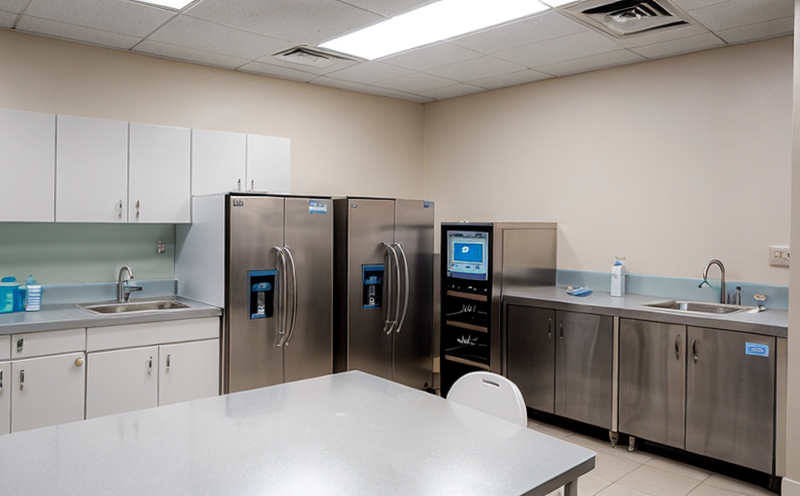Electronics/Sensor Sterilization Compatibility
The integration of electronics and sensors in medical devices presents unique challenges when it comes to ensuring sterility and proper function after sterilization. In this context, the compatibility between these components is critical for maintaining the integrity and efficacy of medical devices. At Eurolab, we understand the complexities involved in validating the sterilization process for electronic and sensor-based systems.
Electronics and sensors are often a combination of materials such as metals, plastics, glass, and silicon, which can react differently to various sterilization methods. This interaction could lead to degradation, functionality issues, or even failure after sterilization. It is imperative that these components remain operational throughout the entire process.
Our team at Eurolab specializes in providing comprehensive testing services for electronics and sensors used in medical devices. We employ a rigorous approach to ensure compatibility during sterilization processes such as ethylene oxide (EO), gamma irradiation, or steam autoclaving. Our methodology involves detailed analysis of the materials involved, their interactions with different sterilization agents, and the potential impact on functionality.
Our testing process begins with an initial consultation where we gather comprehensive information about the device's design, intended use, and the expected sterilization method. This data is crucial in tailoring our approach to meet your specific needs. After this phase, we proceed with specimen preparation, which involves selecting appropriate samples that represent the electronics or sensors within the medical devices.
The next step includes performing the actual sterilization process according to the specified parameters for each method. Following sterilization, we conduct thorough inspections and tests to evaluate any changes in functionality, appearance, or material properties of the components tested. These assessments are critical to ensure that the device maintains its intended performance post-sterilization.
Our laboratory adheres strictly to recognized international standards such as ISO 11135 for ethylene oxide sterilization, EN ISO 11137 for steam sterilization, and others relevant to your specific requirements. By doing so, we provide you with reliable data that supports regulatory compliance and safety assurance.
Our highly experienced technicians use advanced instrumentation and equipment during these tests, ensuring accurate readings and precise measurements necessary for thorough evaluation. The results from our testing are meticulously documented and presented in clear reports that can be easily understood by quality managers, compliance officers, R&D engineers, and procurement teams alike.
Scope and Methodology
| Parameter | Description |
|---|---|
| Electronics Type | Includes various types such as microprocessors, memory chips, sensors (temperature, pressure, etc.), and more. |
| Sensor Types | Covers temperature, humidity, pressure, accelerometers, gyroscopes, and other sensor technologies used in medical devices. |
| Sterilization Methods | Ethylene oxide (EO), gamma irradiation, steam autoclaving, and others as per client specifications. |
| Material Compatibility | Assesses the interaction between different materials in electronics and sensors with sterilization agents to prevent degradation or loss of functionality. |
| Functional Testing | Involves evaluating the performance of electronic components post-sterilization, ensuring they meet original design specifications. |
Eurolab Advantages
At Eurolab, we pride ourselves on offering unparalleled expertise in electronics and sensor sterilization compatibility testing. Our advanced facilities are equipped with state-of-the-art instruments capable of providing accurate results under various conditions.
- Comprehensive Testing Capabilities: We can test a wide range of electronic components used in medical devices, ensuring compliance with international standards.
- Experienced Technical Team: Our team consists of highly skilled professionals with extensive experience in the field of medical device testing.
- Regulatory Compliance: All our tests are conducted according to recognized international standards, providing you with reliable data that supports regulatory compliance.
- Prompt Reporting: Timely delivery of detailed reports ensures that your decision-making process is not delayed.
Quality and Reliability Assurance
We are committed to delivering high-quality services that meet the highest standards of reliability. Our approach emphasizes precision, accuracy, and consistency in all our test procedures. By adhering strictly to recognized international standards and guidelines, we ensure that every aspect of your project receives thorough attention.
Our quality management system is ISO 9001:2015 certified, ensuring continuous improvement and adherence to best practices. This commitment translates into reliable results that you can trust, thereby enhancing the overall safety and effectiveness of medical devices in the market.





